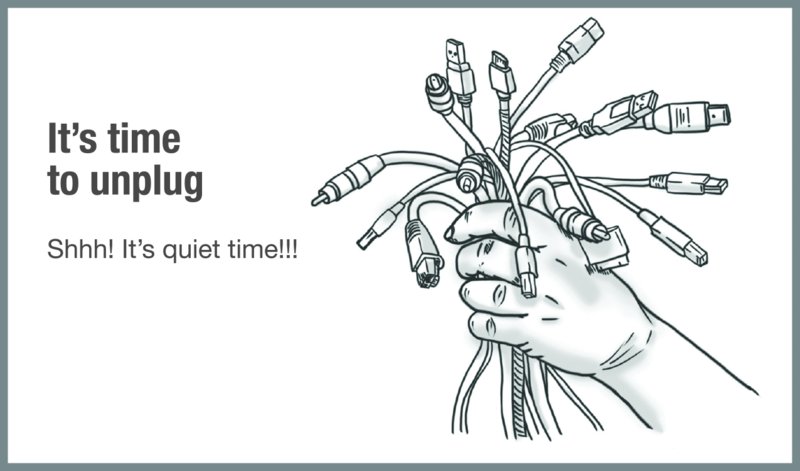Chapter 16
Focus Management 101
Focus management is the responsibility of getting others around us to improve their attention. As they drown in information, we stand on solid ground and throw them a lifeline. Our clients, co-workers, and kids might get swept out to sea since they are so heavily addicted, connected, and distracted that they cannot resist accessing more information and giving into more diversions.
They need us to do something drastic and different to help them out.
I want you to see yourself as a “focus manager.” This is an unofficial job title you can carry into a variety of circumstances and relationships. This hidden badge of honor might save people you know from going deaf by succumbing to the nonstop noise that is becoming their new normal.
As we have discussed earlier, improving your own attention is a personal responsibility, protecting your own brain from the bombardment. Though we maintain this responsibility, we have to be realists and recognize that our families, companies, and connections won’t immediately embrace the challenge without us stepping up and helping them out. They may be unaware of the threats or consequences of infobesity or struggle to have the discipline they need to lock in on the most essential things in life.
You need to assist them when they can’t help themselves.

Changing an Environment That Doesn’t Want to Be Changed
Noise begets even more noise.
Pervasive screens project static rather than insight, wisdom, and knowledge. Technology is at the heart of a heartless push for more noise consumption. It’s not a pretty picture. Here are some staggering statistics from Statistica about what happens every minute:
- 4.3 million videos are watched on YouTube.
- 2.1 million snaps are shared on Snapchat.
- 13 million texts are sent.1
The world needs to stem the tide of the flood of information. Stopping the barrage won’t be easy. Who’s up for the challenge to become a focus manager?
Putting Fun Back into a Party
Several years ago, my daughter Joanna had a fifteenth birthday party. She was in high school and invited about a dozen girls over for the evening. Since it was late March in suburban Chicago, it still wasn’t warm enough to be outside.
As her friends started to arrive, my eight-year-old daughter, Marta, did something unexpected and amazing. Joanna’s friends all had smartphones and Marta knew they’d be using them all night long. She decided to grab a large plastic container and tell (not ask) all the girls nearly twice her age to put their phones in the bins as they entered.
As I stood nearby, I heard her say confidently and boldly, “Put your phones in here. They’ll be safe, and you can get them at the end. You’ll have a lot more fun.”
I was stunned—and so proud. What a leader. Nobody told her to do it. She stepped up, knowing the difference in engagement would be enormous.
She was right.
Over the course of the evening, all the girls were involved in all the activities. None of them felt inclined or tempted to post on social media or check their phones. It was a bold move that ensured they’d have more fun.
And they did.
Years later, Marta had her own party and did the same thing. It was a little harder as she got older, but she realized her friends would have more fun.
Same results: more focus and more fun.

The Role of a Focus Manager
Nowadays, we need to play the same pivotal role as my daughter Marta. We need to help others who struggle to pay attention avoid the constant allure of noise that distracts and detracts them from really living.
We have to step up.
Here’s a list of some of the attributes a person needs to lead others to improve their attention:
- Leadership. Takes charge when others accept the status quo.
- Clear communication. Speaks and writes clearly, simply, and concisely.
- Single-mindedness. Core concern is improving others and their environment.
- Unapologetic. Doesn’t ask permission. On a mission.
- Selflessness. Cares deeply about the well-being of others.
- Discipline. Has willpower to say no consistently and decisively.
- Courage. Not afraid to be a contrarian.
Entire environments become inundated with useless noise, and people become used to hearing it. It’s not just kids hanging out but also parents, professionals, and friends. Someone needs to take the initiative to ensure these settings don’t become places of mindlessness packaged as business as usual.
The few need to start whispering “enough” to the many.
One person can change society. Though this has proven to be true throughout history—for good and bad—it may seem unrealistic for most of us to be that person. What can you do when the force and pressure of information overload is stacking up against all of us? Can you scream “stop” and expect things to change? Will complaining silently serve anyone?
It only takes one dedicated person to start a noise-abatement movement.
In such a noisy world, a great place to start influencing and shaping change is within your immediate environments: schools, homes, offices, and social circles. Start small in some of the following ways:
- Meetings that don’t matter. Are you willing to demand a better agenda or walk out if a meeting is pointless?
- Family time with faces down. Are you asking people to talk to one another at mealtime and not be online?
- Social media unfriended. Are you willing to decrease social media sharing about a sandwich you ate that isn’t worth anyone’s time? Or unplug entirely?
- Tech love lost. Are you opting more for paper and pen versus screens and tablets?
- Expecting always-on. Are you practicing patience and not criticizing people who don’t respond right away to your texts or e-mails?
However small they might seem, each of these moments carries weight. We can shift the paradigm and expect something different. Gone is the status quo, and it starts with small steps.

A Program Manager for a Life Filled with Simplicity and Clarity
The job description of “focus manager” would read like this: “Leader wanted to help throngs of friends, families, and colleagues to stop worrying about useless information, echoing mindless sentiments, and contributing to information addiction. Must be strong, love silence, and crave clarity.”
Yvonne was one such leader, at work and at home.
A single mother with three kids and a career professional, Yvonne was someone who wasn’t afraid to go against the grain. Her kids were above average in school, active in sports, and had lots of friends. Yet, from a young age, they were used to her telling them no when other parents were much more lenient.
She was strong-willed and wanted to develop her kids into well-balanced adults, who practiced self-control, could focus on what mattered, and knew how to avoid the static and chatter of adolescence.
Professionally, Yvonne had little tolerance for meetings with all talk and no action. She set some rules about limiting time on e-mail after hours and on weekends. In conversations with clients, she always led with better questions and practiced more acute listening. They loved her attentiveness and asked to work with her by name.
Yvonne’s desk was less cluttered than those of her colleagues, and her boss always got a straight answer from her, leading to more responsibilities and assignments.
Simply put, she was dialed in at work and tuned in at home. She wasn’t going to let either environment change her.
So, she changed her environments.
FM Pre-set Buttons
When looking for a favorite station on the radio, we can program pre-set buttons for easy access and focus. Likewise, we can help others manage and set their focus more consistently and predictably.
Here are the practices that I will explain in the upcoming chapters that I suggest you learn to become a master of focus management:
- Be better; be brief.
- Communicate like a magician.
- Prepare, organize, and design environments.
- Lead like you’re herding cats.
These pre-sets can help you become a qualified focus manager.
Rewind
- What was your first reaction to Marta taking away the girls’ phones at the party? Do you feel stressed at the thought of not having your phone with you? Are you relieved by the thought of having it away from you only for a while?
- Can you pick an environment in your life where you can begin to practice focus? Maybe it’s having your family and friends turn off their phones when you’re sharing a meal. Start small.
- Which of Yvonne’s habits can you adopt and incorporate into your own? Can you use these habits to begin your work as a focus manager?
[Brief Recap]
Our friends, family, and co-workers are inundated with and addicted to noise. They need “focus managers” like us to help them break free.
{Tune-in}
Begin to think of ways to make yourself a focus manager.
